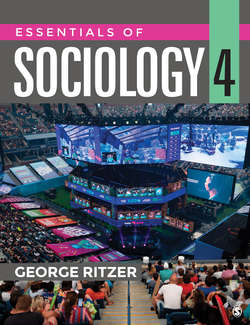Читать книгу Essentials of Sociology - George Ritzer - Страница 154
На сайте Литреса книга снята с продажи.
Other Aspects of Adult Socialization
ОглавлениеAdult socialization and resocialization take place in many other ways and in many other settings. For example, medical schools, law schools, and graduate schools of various types socialize their students to be doctors, lawyers, nurses, and members of other professions (Becker and Geer 1958; Granfield 1992; Hafferty 2009). Students have to learn the norms that govern their appearance; conduct; and interactions with others in their professions, their patients or clients, and the public at large. Medical residents, for example, need to learn how to present their diagnoses to patients with sensitivity and confidence. They also learn to maintain and reinforce status differences between doctors and nurses.
A number of other situations lead to the need for adult socialization or resocialization (Brim 1968; Lutfey and Mortimer 2006; Wilson 1984):
Changes in societal values and norms. Many aspects of American culture are experiencing rapid change and people need to be socialized into the new cultural realities.
Family changes. Separation, divorce, death of a spouse, and remarriage involve particularly important transitions for the adults involved, not just the children. They require considerable adult resocialization into new relationships, new household organization, and new public images.
Geographic mobility. Job change, retirement, and migration are becoming increasingly likely. People undergoing any of these transitions must be resocialized into not only new physical environments but also new subcultures.
Changes associated with aging. As people age, they gradually become disengaged from work, which has implications for relationships and financial well-being. A retired person must become resocialized into this new status.
Life in a total institution like a prison is cut off from the rest of society. In this case, even the guard is out of reach.
Barbara Davidson/Los Angeles Times via Getty Images
